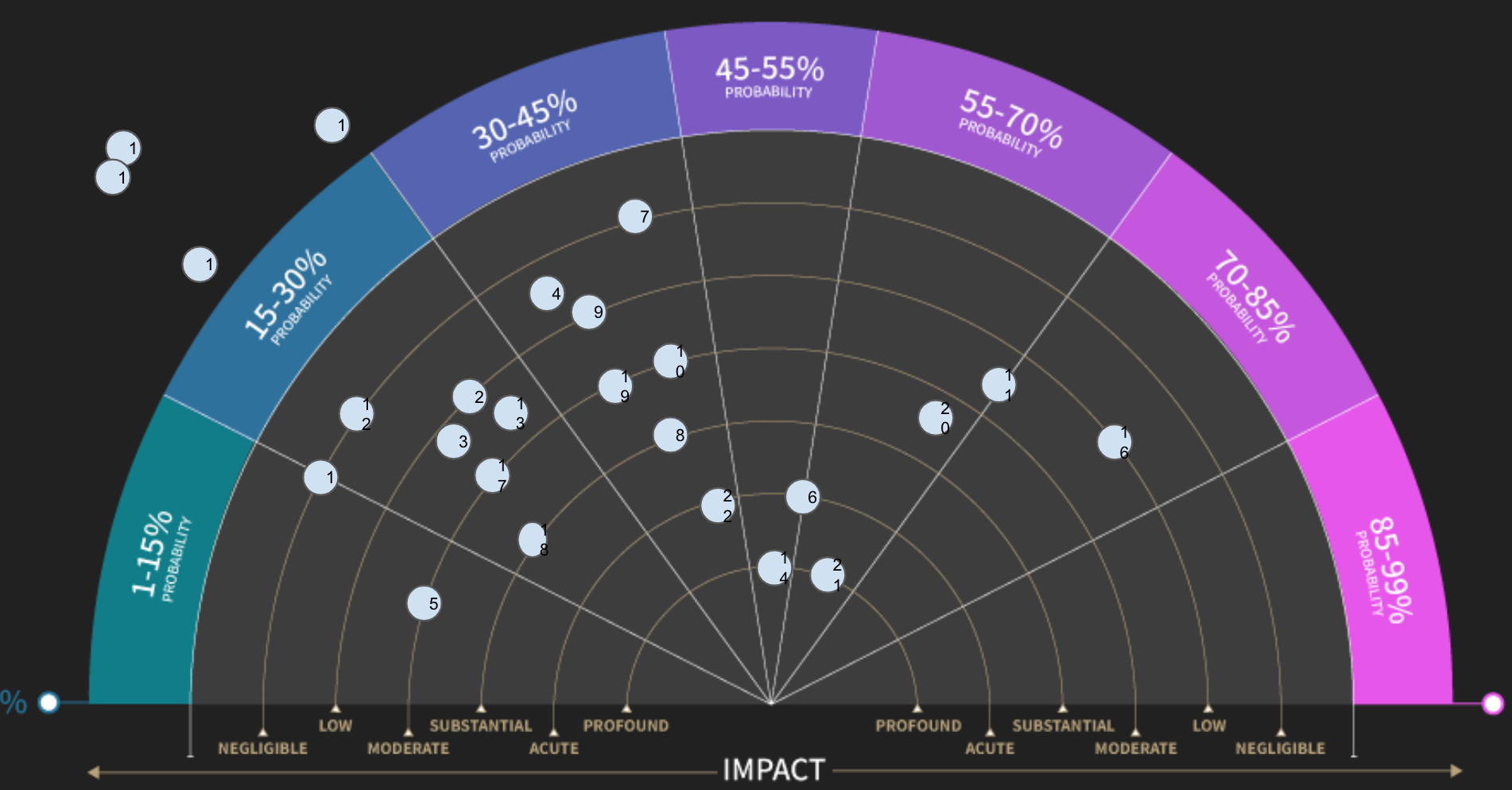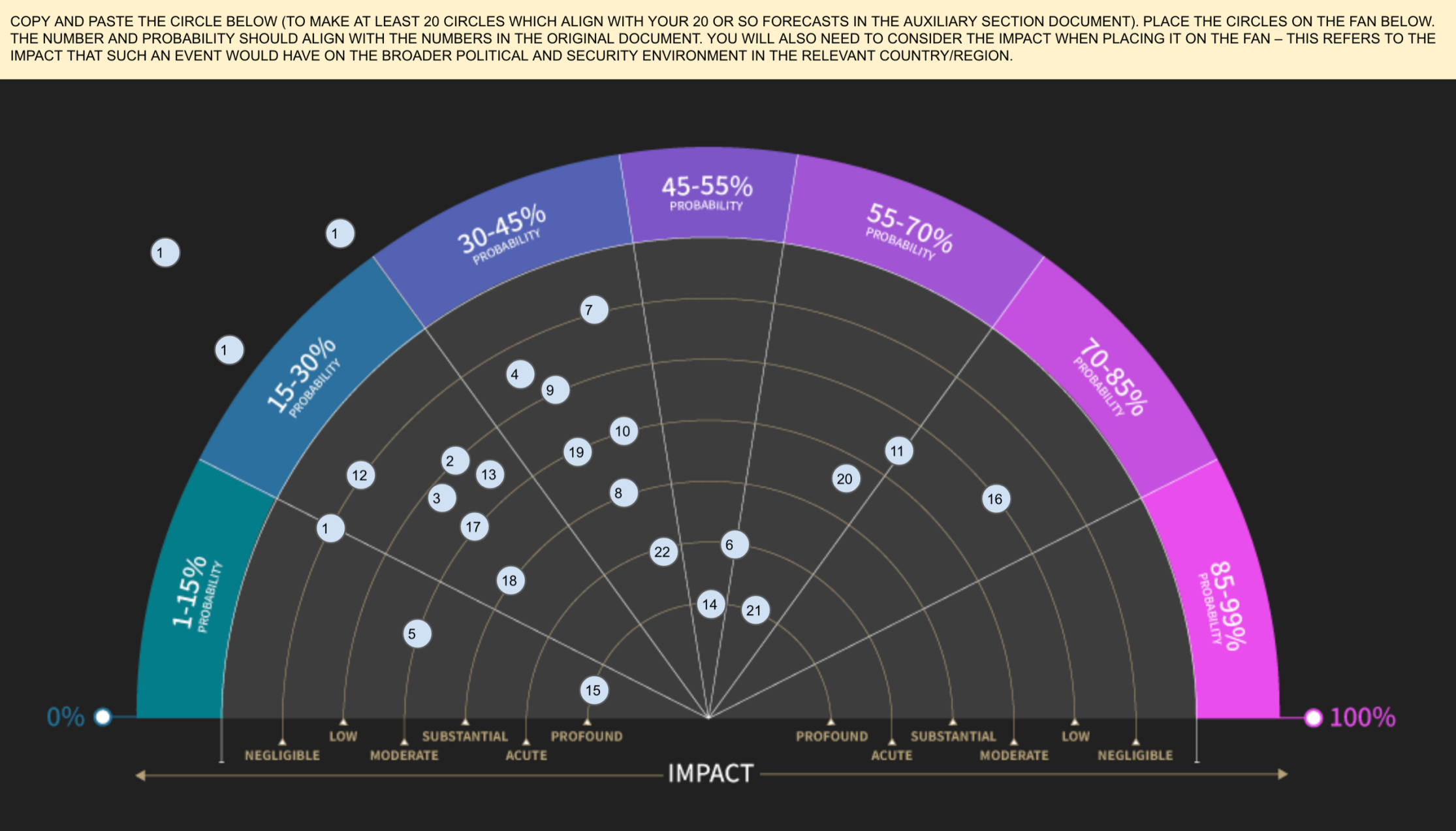The reluctant interventionist


A calm and secure Eurasia relies heavily upon control, suppression, and money. Protecting near-term economic growth seems to be what will shape the will of the region’s strongmen in 2022.


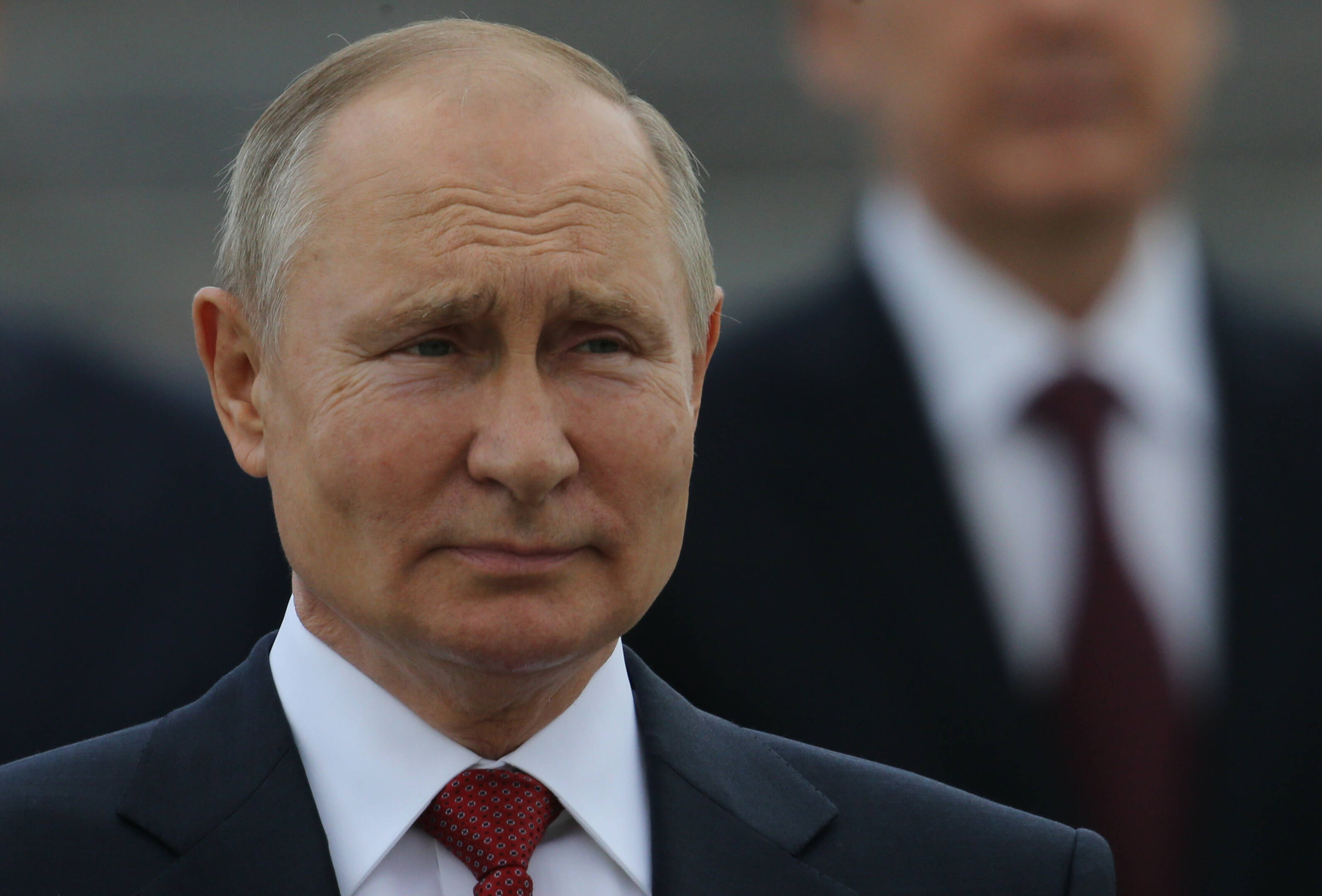
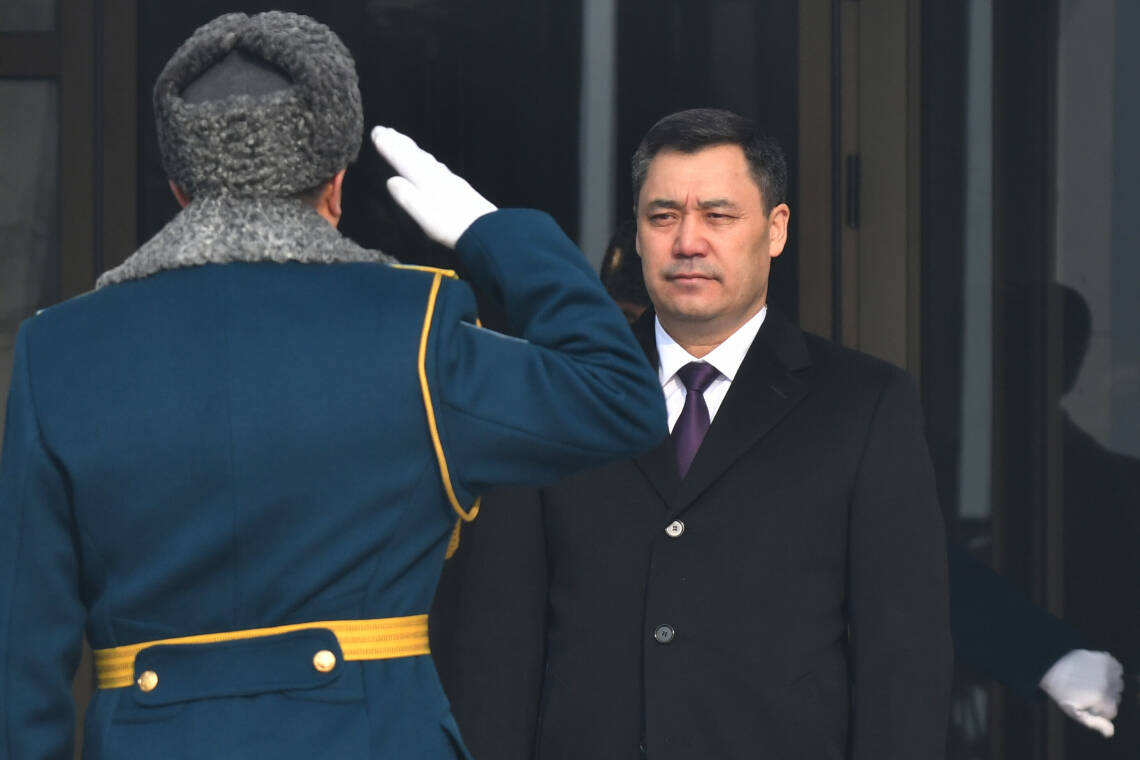

Uzbekistan
Ukraine
Armenia
Azerbaijan
Belarus
Georgia
Kazakhstan
Kyrgyzstan
Moldova
Russia
Tajikistan
Turkey
Turkmenistan


The media environment in
Armenia is likely to remain
highly polarised between
pro-government and opposition outlets but state interference will probably remain limited under the current government.


An authoritarian slide
Sources: Dragonfly SIAS, Committee to Protect Journalists, Freedom House, Reporters without Borders, World Bank
Note: All metrics (except for the Democracy rating) use a scale whereby a higher score indicates a worse outcome. A lower Democracy rating indicates a worse outcome.
Nearly every government in Eurasia is on a steady slide into greater authoritarianism, barring Moldova. The largest economies have set their sights on social media companies, seemingly out of fear of what such uncontrolled discussion could lead to for their regimes. Meanwhile smaller states are pursuing tried and tested methods of political interference, regulation and blunt intimidation to suppress civil society, independent media and opposition activism in equal measure.
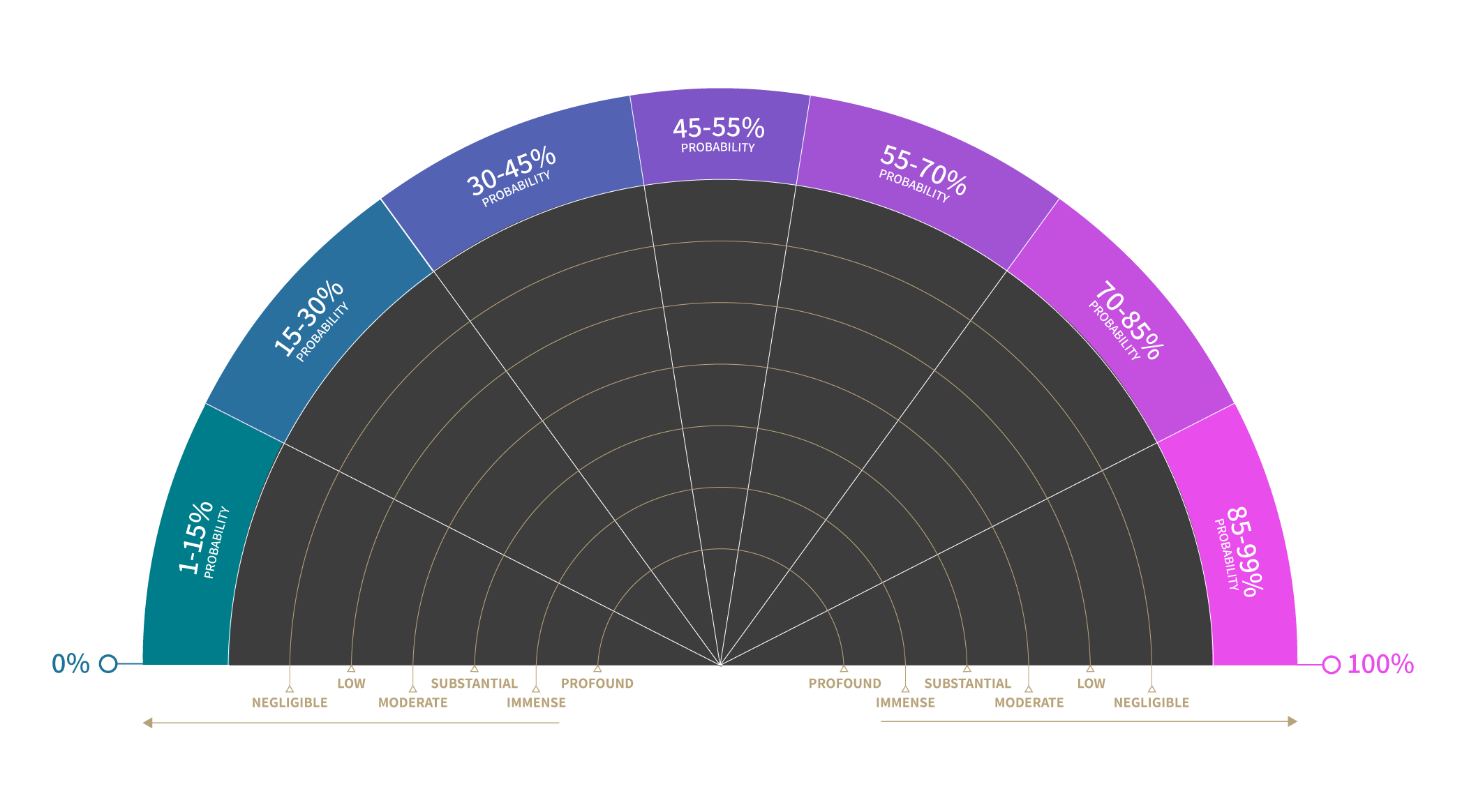
CLICK ON FLAGS TO
SHOW INFORMATION






















Forecasts
Dates to Watch
Key Indicators
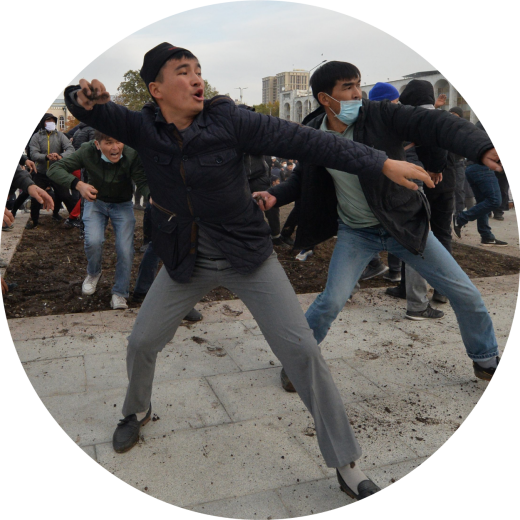
Civil conflict in Kyrgyzstan
President Japarov’s attempts to tighten his grip on power next year are likely to meet some resistance from within the state. High-profile arrests of ministers and security officials would suggest opposition to him and wider discontent is growing, particularly in southern Kyrgyzstan. With the economic situation likely to worsen still in 2022, any sharp rise in utility bills or food prices would probably signal a resumption of protests, with the same opponents of the president seeking to instigate these into an uprising against Mr Japarov. We doubt that he would try to weather such a crisis.
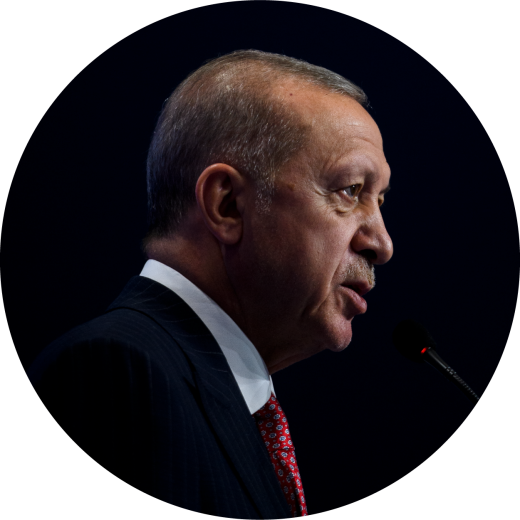
Turkey crisis developing
Rumours of President Erdogan’s ill-health and signs of his waning popularity will almost certainly continue to circle well into 2022, and with them rising uncertainty over his leadership. Any prolonged absence of the president from public view is an indicator to watch for brewing instability. Key officials resigning would also suggest disagreements over domestic policy are widening, with hardline nationalists highly likely to fill any empty space in the decision-making circle around Mr Erdogan.
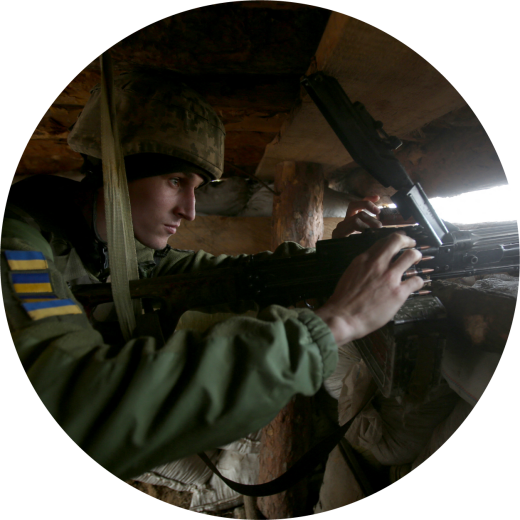
Ukraine conflict escalation
President Zelensky is likely to remain the most unpredictable political actor in the Ukraine conflict next year. His weakening support at home and the boost in polls that escalations in the fighting evidently yields means he may see benefit in intensifying the conflict in Donbas. The use of drones by Ukrainian forces in Donbas and their shooting down are key indicators to watch as precursors to escalating military buildups and renewed fighting.
President Zelensky pulling out of the Normandy agreement would be a strong signal of his intent to retake the region by force. This high impact scenario would probably see Russia dragged into active combat operations again, both in Donbas and probably the Sea of Azov.


Risk dashboard
Infographic
Assessment
Forecasts
Dates to watch
Key indicators
Images: Getty Images (Mikhail Svetlov; Vyacheslav Oseledko; Antonio Masiello; Anatolii Stepanov)
Eurasia
The reluctant
interventionist
Eurasia is likely to experience a relatively quiet year by recent standards. The region appears to be entering a period of steady consolidation, following a series of disruptive crises in 2020 and 2021. In particular, we forecast that Russia will move away from its position as a disruptor.
In turn, friction between Russia and Turkey – the region’s two major powers – is likely to ease. Domestic issues in Turkey and Kyrgyzstan, and a persistent chance of renewed conflict in eastern Ukraine, are three potential spoilers to our forecast of a comparatively quiet year, however.
There are signs that the government of Russia is shifting towards a more cooperative international strategy, particularly in key areas like nuclear proliferation, climate change and counterterrorism. This is due to President Putin being in a stronger and less-threatened position domestically than before, and a strong self-interest in protecting Russia’s economic recovery. Public finances are improving, independent media is no more, and the political challenge posed by Alexei Navalny has gone. The ruling United Russia party has also consolidated power, with a strong win in parliamentary elections last year.
In apparent recognition of the strength of Mr Putin’s position, the Biden administration is likely to deal with the Kremlin on a more equal basis. This is an outcome Mr Putin has long sought. The approach does not mean that Russia is even remotely likely to cease hostile clandestine activity towards the US or Europe in 2022. Hostile cyber activity, funding fringe political parties, vigorous and targeted intelligence gathering, and the occasional murder of Russian dissidents are all true-to-form activities that we can still reasonably expect to see under Mr Putin’s watch. >>
Scroll down
Uzbekistan
Anniversary of 2005 Andijan massacre
13 May
Ukraine
Anniversary of 2014 Maidan Revolution
February
Ukraine
Victory Day over Nazism
9 February
Russia / Ukraine
Anniversary of the annexation of Crimea from Ukraine by Russia
20 February
Russia
Anniversary of 2015 assassination of
Boris Nemtsov
27 February
Kyrgyzstan
Anniversary of 2005
Tulip Revolution
22 March –11 April
Eurasia
Annunciation Day
25 March
Moldova
Anniversary of disputed 2009 parliamentary elections
6 April –12 April
ARMENIA
Anniversary of 2018
Velvet Revolution
April - May
Eurasia
Earth Day
22 April
EURASIA
Start of Ramadan
2 April
Eurasia
End of Ramadan
1 May
Eurasia
Eid Al-Fitr
2 May–3 May
Belarus / Russia
Victory Day
9 May
Turkey
Anniversary of the Gezi
Park protests
31 May
Eurasia
Eid Al-Adha
9 July
Turkey
Anniversary of the 2016 coup attempt
15 July
Russia
Navy Day in
St Petersburg and
in Crimea
31 July
Georgia
Anniversary of beginning of Russian invasion of Georgia
7 August
Eurasia
Ashura
7 August–8 August
BelaruS
Anniversary of disputed presidential election in 2020
9 August
Uzbekistan
Shanghai Cooperation Organisation summit
in Samarkand
15 September–16 September
Kyrgyzstan
Independence Day
1 September
Turkey
Republic Day
29 October
Georgia
Anniversary of disputed parliamentary elections in 2020
31 October
Georgia
Anniversary of
Rose Revolution
3 November–23 November
Azerbaijan
Victory Day
8 November
Armenia / Azerbaijan
Anniversary of 2020 Nagorno-Karabakh War
10 November
Kazakhstan
Independence Day
16 December
Eurasia
Orthodox Christmas Eve
6 January
The reluctant interventionist


A calm and secure Eurasia relies heavily upon control, suppression, and money. Protecting near-term economic growth seems to be what will shape the will of strongmen in 2022.



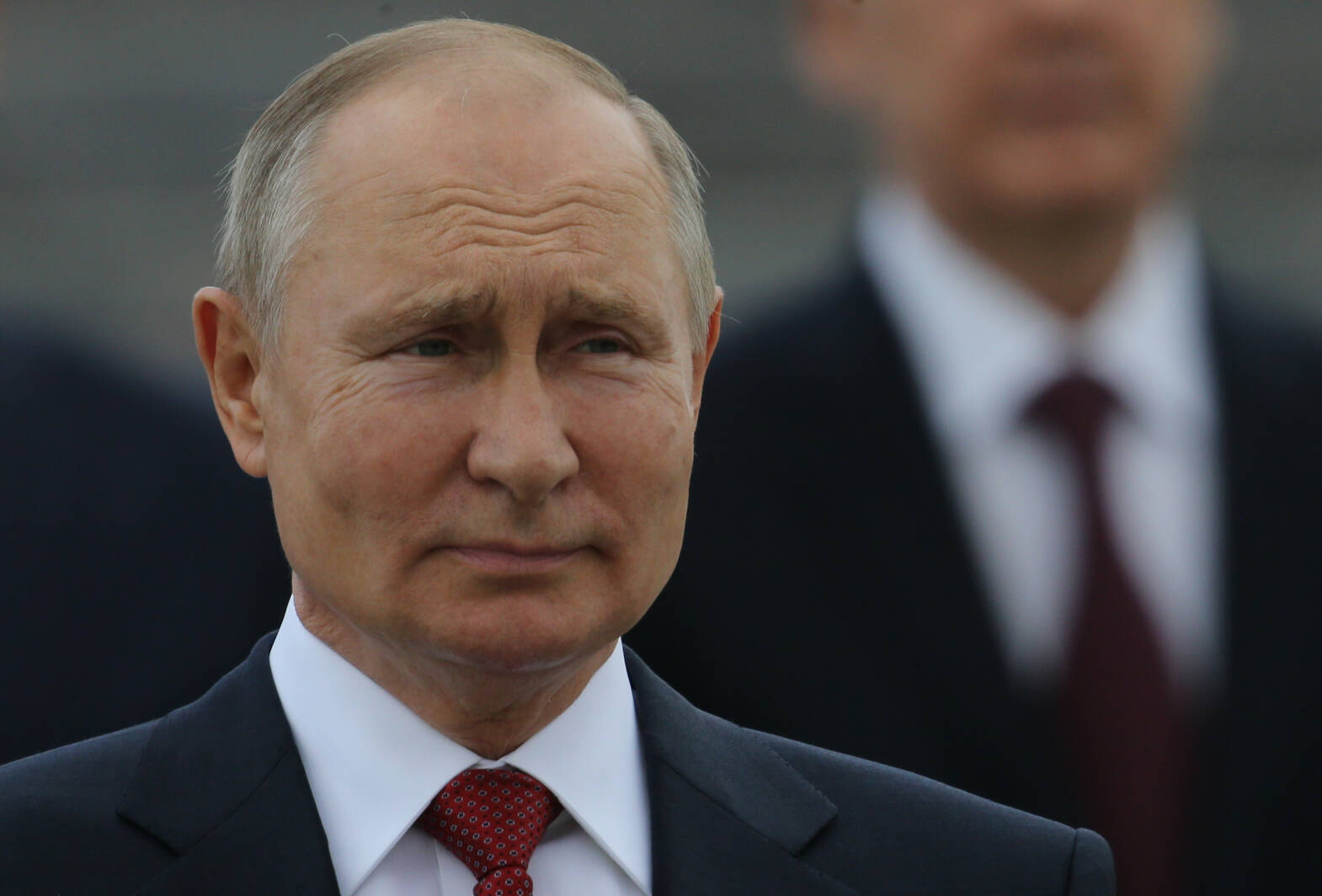
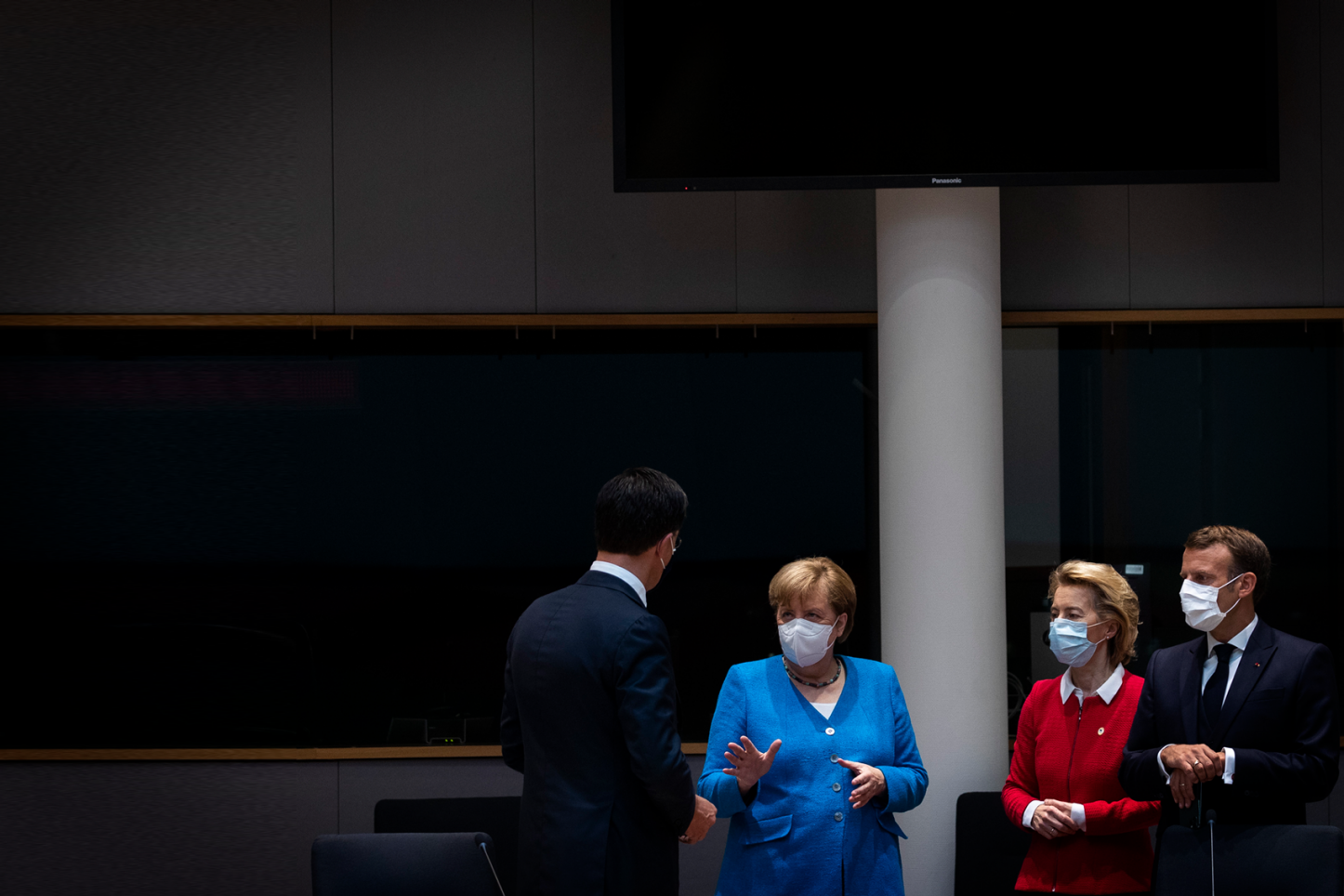
Nearly every government in Eurasia is on a steady slide into greater authoritarianism, barring Moldova. The largest economies have set their sights on social media companies, seemingly out of fear of what such uncontrolled discussion could lead to for their regimes. Meanwhile smaller states are pursuing tried and tested methods of political interference, regulation and blunt intimidation to suppress civil society, independent media and opposition activism in equal measure.
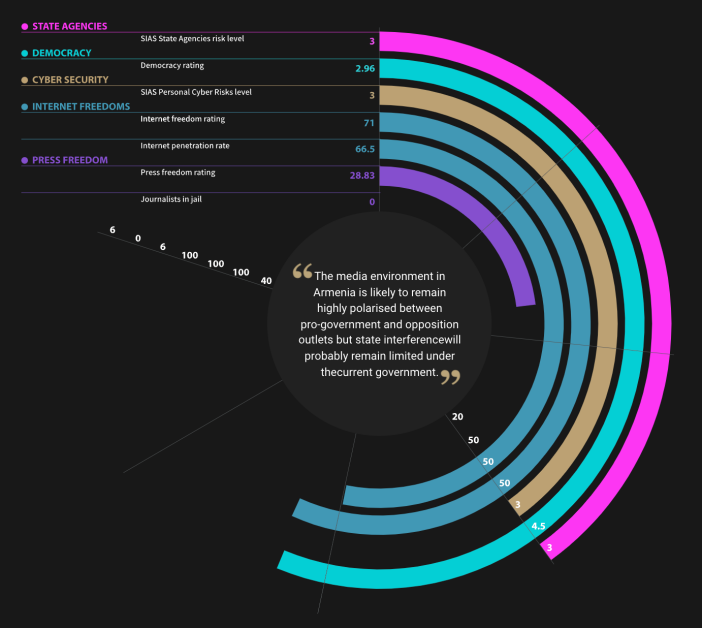
An authoritarian slide


For best results
We recommend that you view this in a desktop browser. If using a tablet or smartphone, some infographics may only respond to device-specific gestures.
Forecasts
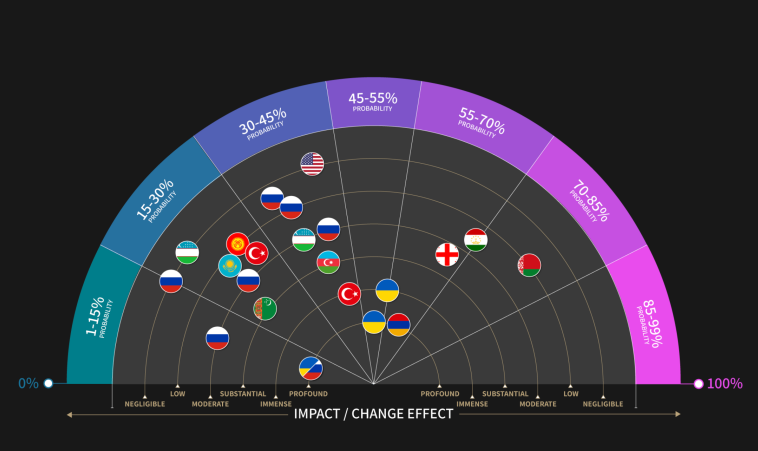

Sources: Dragonfly SIAS, Committee to Protect Journalists, Freedom House, Reporters without Borders, World Bank
Note: All metrics (except for the Democracy rating) use a scale whereby a higher score indicates a worse outcome. A lower Democracy rating indicates a worse outcome.
Key Indicators
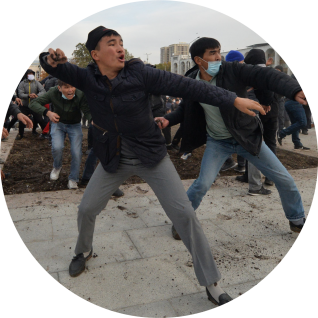
Civil conflict in Kyrgyzstan
President Japarov’s attempts to tighten his grip on power next year are likely to meet some resistance from within the state. High-profile arrests of ministers and security officials would suggest opposition to him and wider discontent is growing, particularly in southern Kyrgyzstan. With the economic situation likely to worsen still in 2022, any sharp rise in utility bills or food prices would probably signal a resumption of protests, with the same opponents of the president seeking to instigate these into an uprising against Mr Japarov. We doubt that he would try to weather such a crisis.
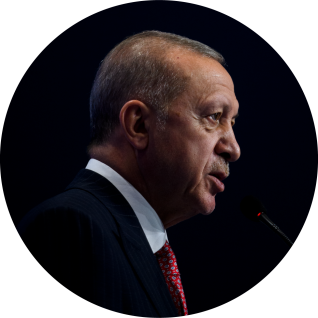
Turkey crisis developing
Rumours of President Erdogan’s ill-health and signs of his waning popularity will almost certainly continue to circle well into 2022, and with them rising uncertainty over his leadership. Any prolonged absence of the president from public view is an indicator to watch for brewing instability. Key officials resigning would also suggest disagreements over domestic policy are widening, with hardline nationalists highly likely to fill any empty space in the decision-making circle around Mr Erdogan.
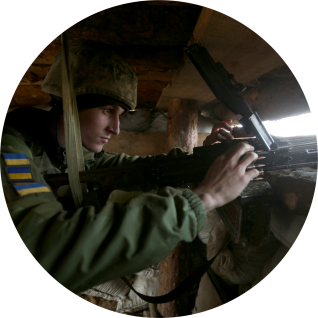
Ukraine conflict escalation
President Zelensky is likely to remain the most unpredictable political actor in the Ukraine conflict next year. His weakening support at home and the boost in polls that escalations in the fighting evidently yields means he may see benefit in intensifying the conflict in Donbas. The use of drones by Ukrainian forces in Donbas and their shooting down are key indicators to watch as precursors to escalating military buildups and renewed fighting.
President Zelensky pulling out of the Normandy agreement would be a strong signal of his intent to retake the region by force. This high impact scenario would probably see Russia dragged into active combat operations again, both in Donbas and probably the Sea of Azov.
Azerbaijan
Victory Day
8 November
Moldova
Anniversary of disputed 2009 parliamentary elections
6 April –12 April
Belarus / Russia
Victory Day
9 May
Eurasia
Eid Al-Fitr
2 May–3 May
Eurasia
End of Ramadan
1 May
EURASIA
Start of Ramadan
2 April
Eurasia
Earth Day
22 April
ARMENIA
Anniversary of 2018
Velvet Revolution
April - May
Eurasia
Annunciation Day
25 March
Uzbekistan
Anniversary of 2005 Andijan massacre
13 May
Kyrgyzstan
Anniversary of 2005
Tulip Revolution
22 March –11 April
Russia
Anniversary of 2015 assassination of
Boris Nemtsov
27 February
Russia / Ukraine
Anniversary of the annexation of Crimea from Ukraine by Russia
20 February
Ukraine
Victory Day over Nazism
9 February
Ukraine
Anniversary of 2014 Maidan Revolution
February
Turkey
Anniversary of the Gezi
Park protests
31 May
Turkey
Republic Day
29 October
Kazakhstan
Independence Day
16 December
Armenia / Azerbaijan
Anniversary of 2020 Nagorno-Karabakh War
10 November
Georgia
Anniversary of
Rose Revolution
3 November–23 November
Georgia
Anniversary of disputed parliamentary elections in 2020
31 October
Kyrgyzstan
Independence Day
1 September
Eurasia
Eid Al-Adha
9 July
Uzbekistan
Shanghai Cooperation Organisation summit
in Samarkand
15 September–16 September
BelaruS
Anniversary of disputed presidential election in 2020
9 August
Eurasia
Ashura
7 August–8 August
Georgia
Anniversary of beginning of Russian invasion of Georgia
7 August
Russia
Navy Day in
St Petersburg and
in Crimea
31 July
Turkey
Anniversary of the 2016 coup attempt
15 July
Eurasia
Orthodox Christmas Eve
6 January
The reluctant
interventionist
Eurasia is likely to experience a relatively quiet year by recent standards. The region appears to be entering a period of steady consolidation, following a series of disruptive crises in 2020 and 2021. In particular, we forecast that Russia will move away from its position as a disruptor.
In turn, friction between Russia and Turkey – the region’s two major powers – is likely to ease. Domestic issues in Turkey and Kyrgyzstan, and a persistent chance of renewed conflict in eastern Ukraine, are three potential spoilers to our forecast of a comparatively quiet year, however.
There are signs that the government of Russia is shifting towards a more cooperative international strategy, particularly in key areas like nuclear proliferation, climate change and counterterrorism. This is due to President Putin being in a stronger and less-threatened position domestically than before, and a strong self-interest in protecting Russia’s economic recovery. Public finances are improving, independent media is no more, and the political challenge posed by Alexei Navalny has gone. The ruling United Russia party has also consolidated power, with a strong win in parliamentary elections last year.
In apparent recognition of the strength of Mr Putin’s position, the Biden administration is likely to deal with the Kremlin on a more equal basis. This is an outcome Mr Putin has long sought. The approach does not mean that Russia is even remotely likely to cease hostile clandestine activity towards the US or Europe in 2022. Hostile cyber activity, funding fringe political parties, vigorous and targeted intelligence gathering, and the occasional murder of Russian dissidents are all true-to-form activities that we can still reasonably expect to see under Mr Putin’s watch. >>
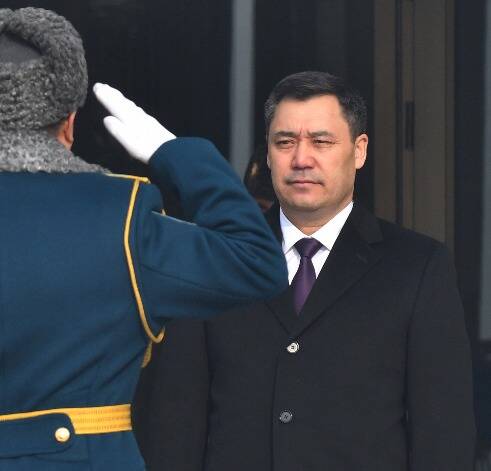
Images: Getty Images (Mikhail Svetlov; Vyacheslav Oseledko; Antonio Masiello; Anatolii Stepanov)


























